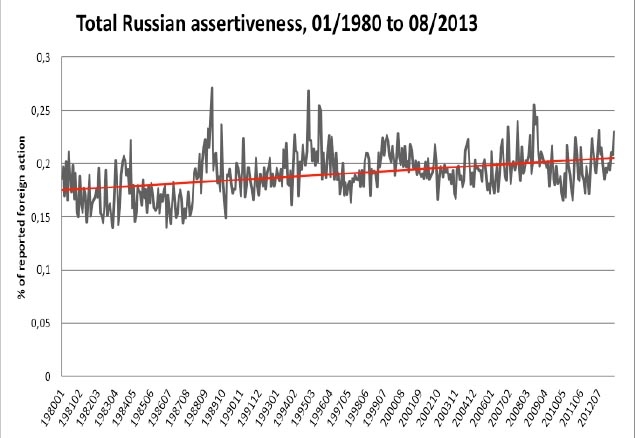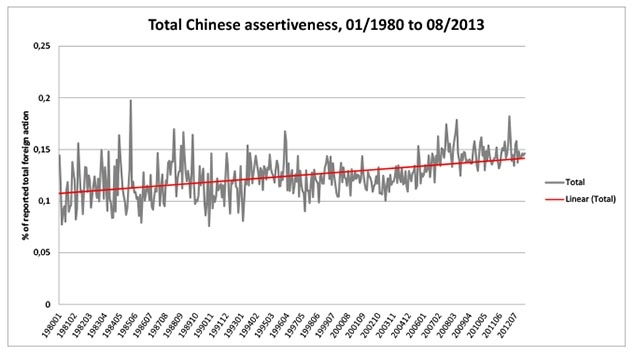Lecture by Prof. Dr. Rob de Wijk of the Institute of Security and Global Affairs at Leiden University and The Hague Centre for Strategic Studies
Present Strategic Context
We are heading into a new phase of geopolitics; the power of ‘the West’ declines and shifts to ‘the East’ which will have a significant impact on the international security situation.
The coming era will be one of multi-polarity and fragmentation. One of the key issues at play, which I discussed at length with my Japanese peers, is the eroding of the international rules that ‘the West’ created over the last centuries and decades. There is a high probability that these rules will not stand as we move into an era where new rules have to be developed which by definition leads to friction in international politics as we are unfamiliar with the behavior of the new team players.
To illustrate how the situation has changed it is interesting to note that up until about ten to five years ago in was quite easy for ‘Western’ countries to carry out an intervention into another country with a mandate from the United Nations. There are also instances however where ‘the West’ intervened without a mandate anyway, as happened for example in 1999 in Kosovo. Such courses of actions are becoming increasingly difficult however as mandates have become harder to obtain because of opposition by countries such as Russia and China, and for good reason. Russia and China have different views on democracy and human rights as well as a more traditional view of sovereignty which makes them less accepting of interfering into the affairs of other countries. The coming period the economic and political centers of gravity will move away from ‘the West’ and shift towards ‘the East’, accompanied by a rise of power politics, while at the same time the classical challenges such as climate change, scarcity and demography remain.
How ‘the West’ reacts
So how does ‘the West’ react to this new developing security situation? As a direct reaction populist parties are emerging, as we do not know how to cope with the changing circumstances. One option is to close the borders and to try to protect ourselves through isolationism and protectionism, while the other option is to embrace the changes and open the borders instead. I think none of these options seem sustainable. The changes are met in ‘the West’ with curiosity, because some of them have been anticipated such as the rise of China and Africa, as well as the emancipation of certain parts of the global population. We are also, however, confronted with the consequences of such developments.
They are met in the West with reactions that give rise to anti-globalization, the rejection of interdependencies in this part of the world, political fragmentation, nationalism, protectionism and separatism. There is also an increase in a certain degree of sympathy for autocracy and state capitalism, of which what is currently happening in Hungary and Turkey is a good example. I am convinced that there will be a backlash on this development, but that would first require some adaptation to the new situation that we are in, of which the first step is to recognize that we are in a new situation to begin with.
The ‘diffusion of power’ is another problem that we face. The widespread use of internet has given a voice to the populace on social media that had not been heard before. People can share their opinions more freely on debates taking place in different countries. This certainly has consequences for the ways in which we adapt to the new situation. What we see for example is that non-state actors have a profound impact on the international political situation, whether it is Greenpeace or IS; there is a new way of dealing with the interdependencies that exist between countries and organisations.
Another debate I had with my Japanese colleagues was on the topic of the preferred instruments of disruption. The military is no longer the preferred instrument to coerce, but rather an instrument for deterrence and only to be actually used as a last resort. The instruments that are currently favoured are the ones that tax on the interdependencies.
An example of such an instrument that is often used is that of the cyber-attack, which is in a way the ‘poor man’s military force’. Economic warfare is another instrument that is playing a larger role. State capitalist powers for example make use of foreign direct investments as well as state-owned enterprises. Russia and China are two countries that are also very strong in wielding the instruments of economic warfare such as foreign direct investments and state-owned enterprises. Russia for example has the state-owned Gazprom, the biggest producer of natural gas in the world. China on the other hand has greatly invested in the Greek harbour of Piraeus which has far-reaching political implications. Commodities can be used as an instrument of power as well; examples are rare earth elements and materials. During the crisis around the Senkaku Islands, China threatened for example to stop the export of rare earth elements to Japan which affected the Japanese car industry among other industries. This clearly demonstrates an attack on various existing interdependencies. The influencing of trade in raw materials and trade in general are key instruments.
In the same way transport is currently affected in the South China Sea. I had lengthy conversations with my Japanese peers about the so-called A2/AD capabilities of China. A2/AD stands for ‘Anti-Access and Area Denial’, and is a term used to describe how certain weapons restrict access to, and passage through, a certain area. China’s robust A2/AD capabilities enable China to easily stop vessels passing through the South China Sea which has implications for the sea lines of communication (SLOC), boycotts, and movements of people.


